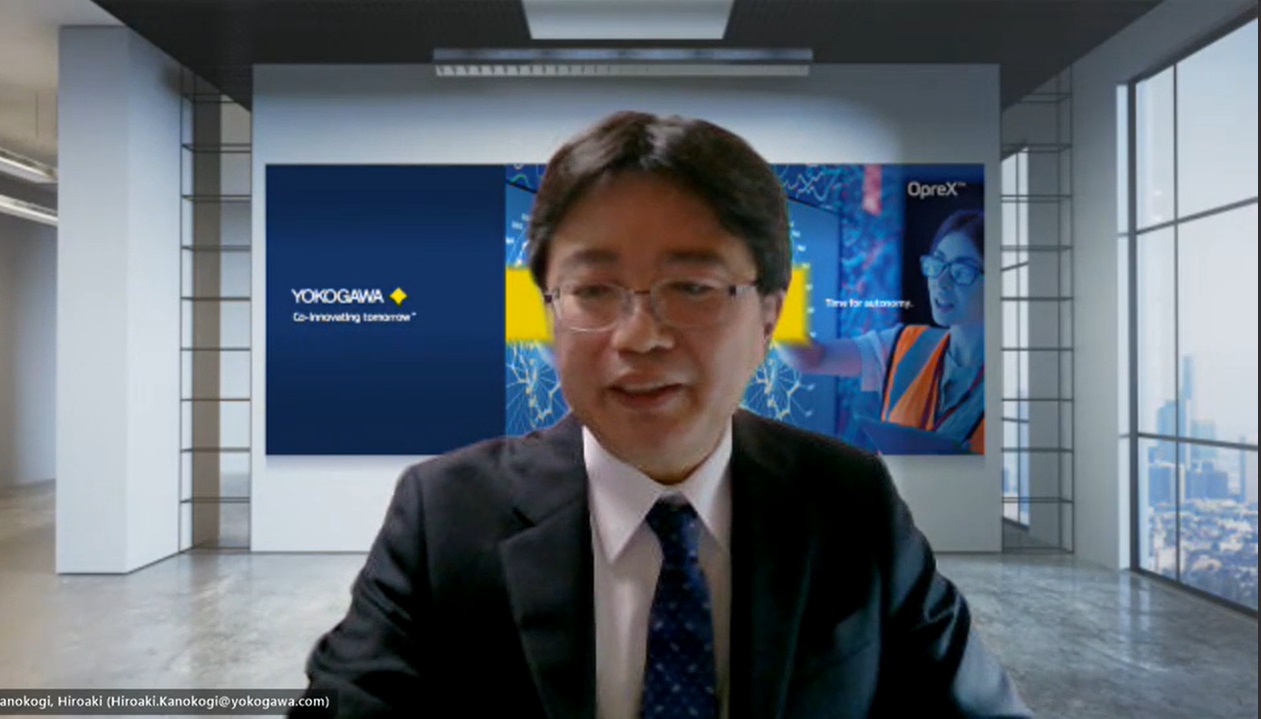Claimed to be the world’s first such field trial in the chemical sector, Yokogawa Electric Corporation and JSR Corporation have successfully deployed Artificial Intelligence (AI) driven algorithm, FKDPP to autonomously run a chemical plant for 35 days.
The field test has confirmed that reinforcement learning AI could be safely applied in an actual plant, also demonstrating that this technology can control operations beyond the capabilities of existing control methods such as PID control and Advanced Process Control (APC).
“The biggest takeaway from this field test is that we can ensure safe autonomous control with AI that improves productivity and reduces cost and time loss,” informs Dr. Hiraoki Kanokogi, General Manager, Yokogawa Products Headquarters, Yokogawa Electric Corporation who shared his thoughts with the media at a virtual press conference.
Highlighting the necessity of having such software solutions, Dr. Kanokogi said, “Due to the aging veteran plant operators, plant owners have been looking for automated operation systems using AI or any other cutting edge technology that could handle disturbances happening in the plants. Therefore, to make such an autonomous AI driven solution a reality, we developed the AI algorithm FKDPP which was published in an academic paper in 2018. We did some experiments on a plant simulator as the 30 learning trials were necessary for the algorithm to study the behaviour of the simulation model and it could control the whole system very well. The findings were published at IEEE International Conference on Big Data in August, 2018. This was the world's first reinforcement learning technology to demonstrate high feasibility for use in plants. In 2019, we did real asset experiments using the A3 tank level control system.”
“Safety, as I said, was the big theme in this field test and we actually proved our method. Our procedure to assure safety to the plants has worked fine,” he empathized.
“Since energy saving is very important for the plant owners, they also look at using waste heat which is kind of free. At the same time, the waste heat is very unstable, affected by the external environment. If it is used for energy saving, the quality of the material would be out of range and if you use the normal energy then savings cannot be achieved. Plant owners have tried to use existing control methods such as PID control or APC but could not be applied. Instead a person has to manually operate the two valves to control the trade off of quality and energy, saving waste heat usage. Then we applied the AI controlled FKDPP in these valve controls continuously for 35 days and found that it was a safe operation with improved productivity,” said Dr. Kanokogi.
Comparing the existing AI deployment to the solution offered by Yokogawa, Dr. Kanokogi commented, “In the industrial AI sector, the vast majority of AI is what we call problem analysis AI. This kind of AI analyses the data that is provided to detect anomalies for predictive maintenance, predict quality, or determine the cause of issues. It is generally used to support human decision making. In this case with the chemical plant, we are talking about autonomous control AI, which actually searches for the optimal control model by itself, and then implements that. We are certainly looking to work with customers on field trials for other processes and applications to confirm the versatility and robustness of our AI algorithm FKDPP, and demonstrate the value in terms of the profitability and sustainability benefits it can deliver.”
Dr. Kanokogi pointed out the fact that an autonomous AI driven algorithm actually searches for the optimal control model by itself.
“It can control the chemical reaction almost perfectly under stable conditions. In case of any disturbances, humans are still very important to control or recover such unexpected change. For external disturbances, humans need to tune in or control everything but they need some knowledge or experience to do that. The new resources take time to do such complicated things,” said Dr. Kanokogi.
